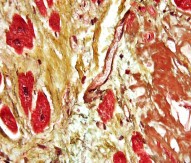
Oestrogen cuts liver, heart disease in women
Scientists have investigated how oestrogen can reduce the risk of liver and heart disease.
According to the investigation’s results, oestrogen has the ability to safeguard females against high cholesterol and heart disease during childbearing years. The hormone has a positive effect on liver metabolism by revealing a new type of receptor which controls genes, helping to regulate cholesterol and fatty acid production.
In comments carried on BioOptics World, Professor Brian Harvey, Royal College of Surgeons in Ireland Principal Investigator, said: “Our research has allowed us to gain important insights into how Oestrogen may suppress some genes and prevent excessive accumulation of cholesterol and triglycerides in the blood that can progress to heart disease and liver cancers. This leaves the door open for the development of drugs that can decrease the incidence of liver and heart disease in women.”
Oestrogen is seen as a possible deterrent to liver cancer, particularly for men who develop this cancer at a far greater rate than women. Tests will now take place on a transgenic mouse to test the impact for such diseases.
The study is published in the journal Science Signalling, and includes researchers from the University of California Irvine. The research, which took place over four years, was funded by National Institutes of Health and the Department of Veterans Affairs, both in the United States; the EU’s Marie Curie Actions; and the Higher Education Authority Programme for Third Level Institutions in Ireland.




